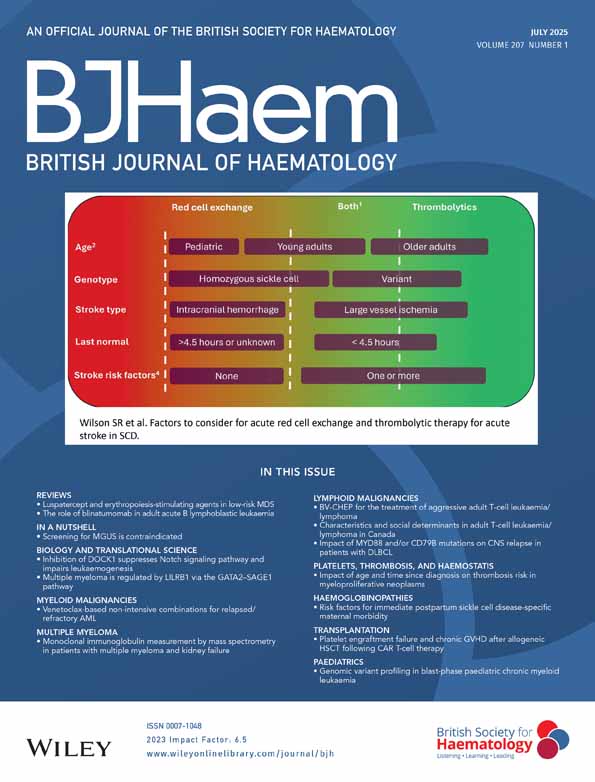Circulating progenitor cells in myelofibrosis: the effect of recombinant α2b interferon in vivo and in vitro
Abstract
Summary We have studied circulating progenitor cells in patients with myelofibrosis, the effects of recombinant α2b interferon (IFN) treatment on these cells in vivo and in vitro and the patients’clinical response to IFN treatment. A 75-fold increase in circulating granulocyte macrophage colony forming units (CFU-GM) and a 25-fold increase in multi-lineage colonies (CFU-GEMM) were seen in the patients compared with controls. Patients who had undergone splenectomy had circulating progenitors within the normal range. IFN treatment of two patients resulted in clinical improvement and reduction in spleen size, but was complicated by a fall in platelet count and persistent malaise. Whilst on treatment the circulating progenitor cells increased up to 5-fold. In contrast, the addition of IFN in vitro to the CFU-GM and CFU-GEMM culture plates resulted in a dose-dependent inhibition of colony growth which was unaffected by the removal of T-cells and monocytes. Thus we confirm that circulating progenitors are raised in patients with myelofibrosis, IFN may be of benefit clinically, reducing spleen size but may increase levels of these cells in vivo. This is in contrast to the inhibitory effect of IFN in vitro on CFU-GM and CFU-GEMM growth.




